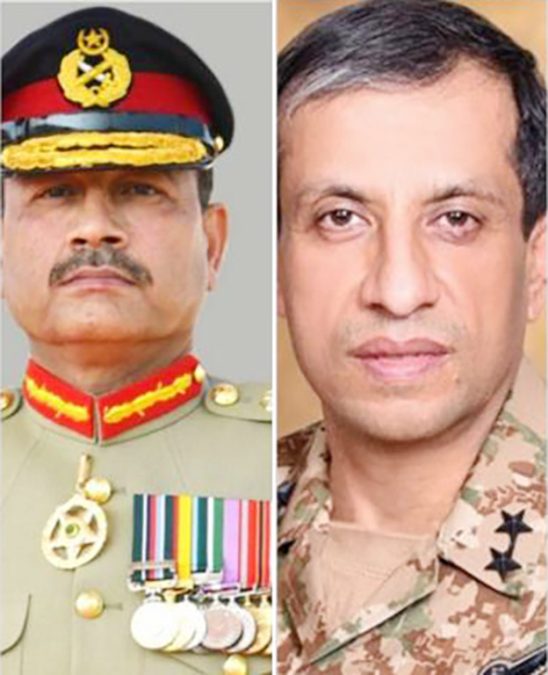In 2023, Pakistan grappled with an unprecedented convergence of economic turmoil, political instability, and escalating security threats. Amidst this turmoil, a less visible but equally critical issue unfolded quietly: the underreporting of military and paramilitary casualties by the Inter-Services Public Relations (ISPR), the military's media wing tasked with managing the security establishment's public image and disseminating information.
A Cloak of Secrecy
The ISPR's handling of casualty figures has long been a point of contention. In 2023, a year marked by acute national crises, the discrepancy between reported and actual casualty figures among Pakistan's armed forces and paramilitary outfits came into sharp focus. Open source intelligence (OSINT) investigations, supported by documents accessed by this writer, have revealed significant disparities, uncovering the hidden toll of Pakistan's internal security struggles amidst an increasingly volatile security landscape.

The Unreported Death Toll
Exclusive findings show that the ISPR did not report a total of 316 fatalities within the military and paramilitary forces for the year. The Pakistan Army sustained 236 fatalities that have gone unreported. These staggering casualty figures mark a substantial loss for the country's primary military force. The casualties amongst a range of paramilitary and security organisations like the Pakistan Rangers, Frontier Corps (FC), Levies, Counter Terrorism Department (CTD), and Pakistan Coast Guards (PCG) experienced a total of 80 fatalities.
A detailed breakdown is as follows: The Pakistan Rangers suffered 14 fatalities. The FC witnessed 53 casualties. The death toll for the Levies stood at 11, while the Counter CTD fatalities and the PCG had one personnel killed, respectively.
These fatalities, resulting from a range of hostile engagements, including militant attacks, unidentified gunmen, counter-terror operations, explosions caused by improvised explosive devices (IED), and border skirmishes among other reasons, were notably absent from the ISPR's disclosures.
These deaths and the situations that led to them highlight the severe security challenges faced by Pakistan as the country marches towards parliamentary elections on 8 February 2024. The ghosts of last year loom large in this backdrop.

The Discrepancy in Official Reporting
The official casualty figures released by the ISPR starkly contrast with the realities documented by independent assessments carried out by Islamabad-based think tank, Centre for Research and Security Studies (CRSS) and various international media reports. The ISPR, reported only 142 Pakistan Army deaths, a figure significantly lower than the actual number of fatalities suffered by the Service.
The CRSS report on the other hand provides a detailed account of the violence faced by Pakistani security forces. In the third quarter of 2023 alone, the CRSS report detailed that 445 Pakistani security forces personnel lost their lives. During this period, they highlighted the acute challenges faced by the security apparatus in maintaining national security and combating terrorism.
A report published in the Voice of America highlights that terror attacks across Pakistan killed around 500 civilians and a similar number of security forces in 2023. The media report further notes that 2023 was the deadliest year for Pakistani police and military forces in a decade, collectively losing more than 500 personnel in terrorist bombings and ambushes.
The aforementioned is just one of numerous international media reports that shed some light on the casualties sustained by Pakistan's security apparatus. The 316 undisclosed security forces deaths only add to what are grim statistics.
The Need for Greater Transparency
The underreporting of military and paramilitary casualties by the ISPR and the broader security establishment highlights a critical need for transparency within Pakistan's security forces. Acknowledging the full extent of these deaths is essential for honouring the security personnel killed in the line of duty, rebuilding public trust, and fostering an informed citizenry ahead of this election cycle.
Several defence and security analysts have highlighted how it is an unwritten institutional practice that has long been observed. Military author Colonel Vinay B Dalvi (Retd) for instance notes: “As early as 1999, when India and Pakistan fought pitched battles on the icy heights of Kargil, it was the Indian Army which gave slain members of the Northern Light Infantry (LI) proper military burials, personnel whom Islamabad sent to fight, but disavowed to maintain plausible deniability. Now, a quarter century on, the culture of denying their soldiers the basic courtesy is ironic in a country run by the military.”
As Pakistan continues to face complex security challenges the importance of open and accurate reporting of casualties cannot be overstated, ensuring that the sacrifices of its security personnel are recognised and remembered like it is by professional militaries across the world.

Aritra Banerjee is the co-author of the book ‘The Indian Navy At 75: Reminiscing the Voyage' and was the co-founder of Mission Victory India (MVI), a new-age military reforms think-tank. He has worked in TV, Print and Digital media and has been a columnist writing on strategic affairs for national and international publications.



